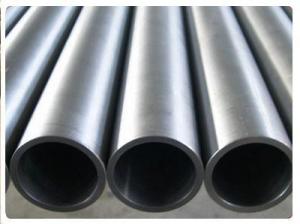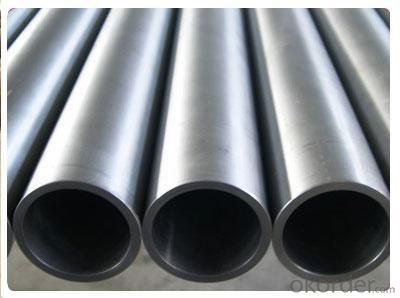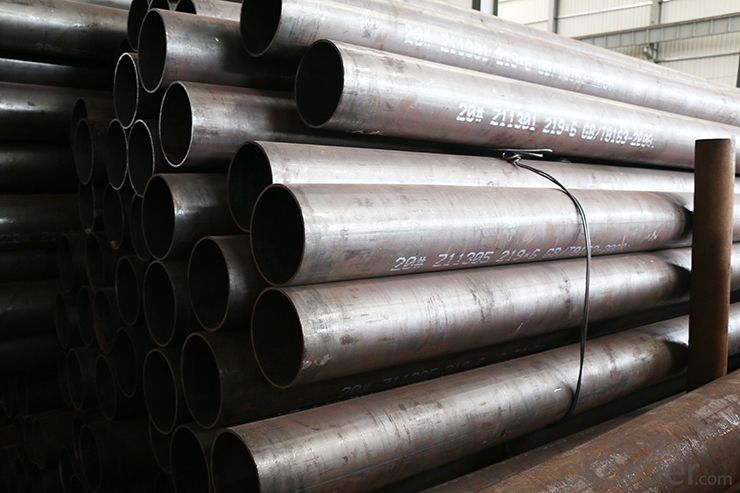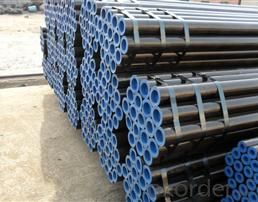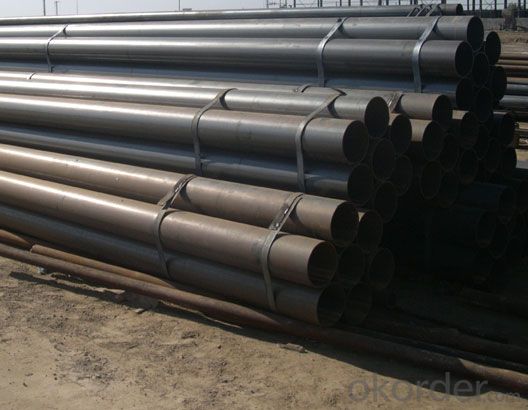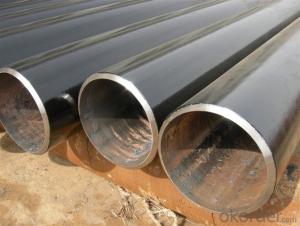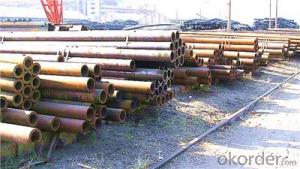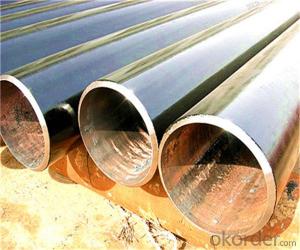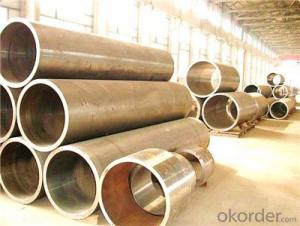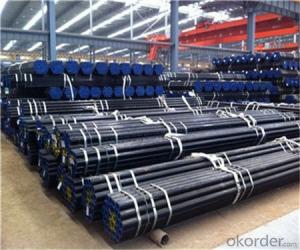Seamless Steel Pipe With Cheap Price From Factory
- Loading Port:
- Tianjin
- Payment Terms:
- TT OR LC
- Min Order Qty:
- 33 m.t.
- Supply Capability:
- 500 m.t./month
OKorder Service Pledge
OKorder Financial Service
You Might Also Like
PRODUCT DETAILS
1.Structure of Seamless Steel Pipe Description:
A large amount of Seamless Steel Pipes is offered to the clients at cost effective rates. These pipes are extremely durable, resistant to corrosion and have high tensile strength. Our pipes are used in nuclear plants, power plants, refineries and construction industry across the country. Furthermore, we are capable of providing these seamless pipes to the clients in bulk quantity.
2.Main Features of the Steel Pipe:
• High manufacturing accuracy
• High strength
• Small inertia resistance
• Strong heat dissipation ability
• Good visual effect
•Reasonable price
3.Packaging & Delivery:
| Packaging Details: | Seaworthy packages, bundles wrapped with strong steel strip |
| Delivery Detail: | 15-30 days after received 30% TT |
4.Seamless Steel Pipe Specification:
| Standard: | GB, DIN, ASTM,ASME, ASTM A106-2006, ASTM A53-2007 |
| Grade: | 10#,20#, 45#, 16Mn |
Thickness: | 8 - 33 mm |
| Section Shape: | Round |
| Outer Diameter: | 133 - 219 mm |
| Place of Origin: | Shandong, China (Mainland) |
| Secondary Or Not: | Non-secondary |
| Application: | Hydraulic Pipe |
| Technique: | Cold Drawn |
| Certification: | API |
| Surface Treatment: | factory state or painted black |
| Special Pipe: | API Pipe |
| Alloy Or Not: | Non-alloy |
| Length: | 5-12M |
| Outer Diameter: | 21.3-610mm |
5.Product pictures
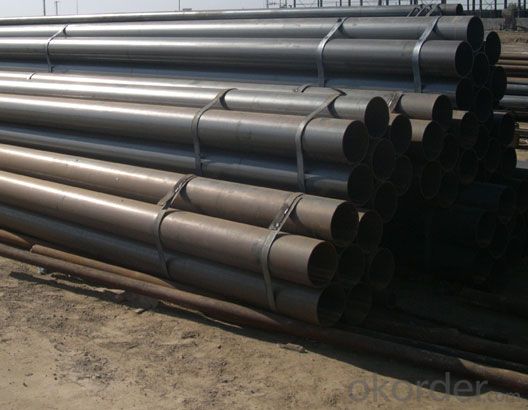
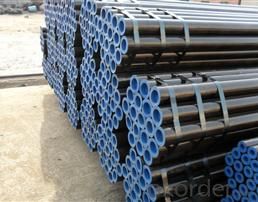
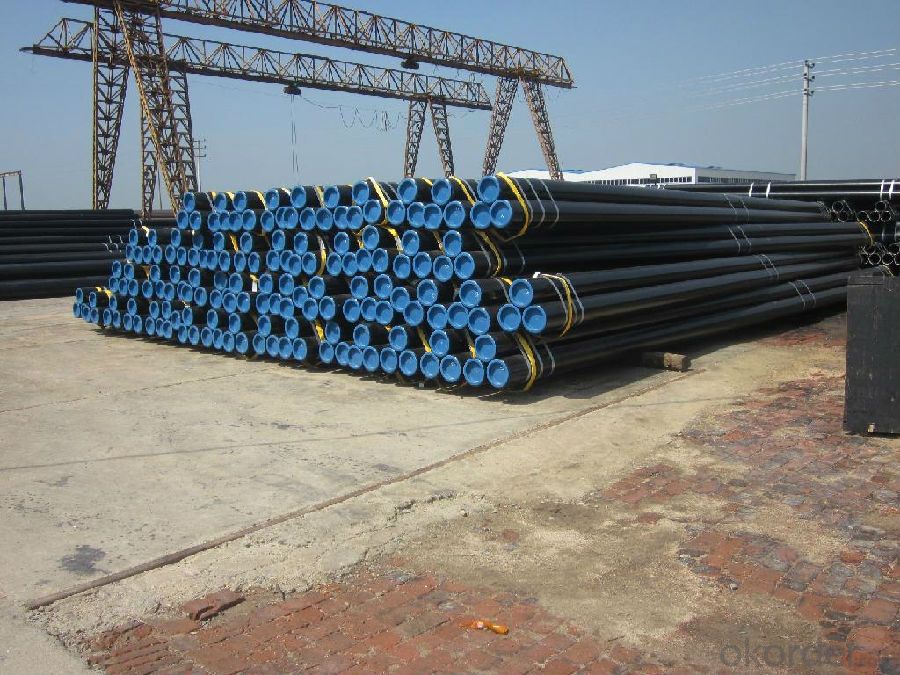
6.FAQ of Seamless steel pipe:
①How is the quality of your products?
Our products are manufactured strictly according to national and internaional standard, and we take a test
on every pipe before delivered out. If you want see our quality certifications and all kinds of testing report, please just ask us for it.
Guaranteed: If products’ quality don’t accord to discription as we give or the promise before you place order, we promise 100% refund.
②How about price?
Yes, we are factory and be able to give you lowest price below market one, and we have a policy that “ for saving time and absolutely honest business attitude, we quote as lowest as possible for any customer, and discount can be given according to quantity”,if you like bargain and factory price is not low enough as you think, just don’t waste your time.Please trust the quotation we would give you, it is professional one.
③Why should you chose us?
Chose happens because of quality, then price, We can give you both.Additionally, we can also offer professional products inquiry, products knowledge train(for agents), smooth goods delivery, exellent customer solution proposals.Our service formula: good quality+good price+good service=customer’s trust.
SGS test is available, customer inspection before shipping is welcome, third party inspection is no problem.
Any question, pls feel free to contact us !
- Q: How do steel pipes compare to other materials, such as PVC or copper?
- Steel pipes are generally considered to be stronger and more durable compared to materials like PVC or copper. While PVC pipes are lightweight and easy to install, they are not as strong as steel and can be more prone to cracking or breaking. Copper pipes, on the other hand, are known for their corrosion resistance and are commonly used for plumbing systems. However, steel pipes have the advantage of being highly resistant to extreme temperatures, pressure, and damage, making them suitable for a wide range of applications, including industrial and commercial use.
- Q: How are steel pipes insulated to prevent noise transmission?
- Steel pipes are typically insulated to prevent noise transmission through the use of materials such as mineral wool, fiberglass, or foam. These insulation materials are wrapped around the pipes to create a barrier that absorbs and reduces sound waves, preventing them from traveling and causing noise transmission.
- Q: How are steel pipes used in the manufacturing industry?
- Steel pipes are used in the manufacturing industry for a wide range of applications, including the transportation of fluids and gases, structural support in buildings and infrastructure, and as a material for heat exchangers and boilers. They are also utilized in the production of various machinery and equipment, such as conveyors, cranes, and industrial piping systems. Overall, steel pipes play a crucial role in ensuring efficient and reliable operations across numerous manufacturing processes.
- Q: How are steel pipes protected against external corrosion in coastal areas?
- Steel pipes are protected against external corrosion in coastal areas through a combination of coating and cathodic protection measures. One of the most common methods used is the application of a protective coating on the surface of the steel pipe. This coating acts as a barrier between the steel surface and the corrosive elements present in the coastal environment, such as saltwater and humidity. The coating is typically made of materials like epoxy or polyethylene, which are resistant to corrosion and provide a long-lasting protective layer. In addition to coating, cathodic protection is also employed to further safeguard the steel pipes from corrosion. Cathodic protection involves the use of sacrificial anodes or impressed current to prevent the corrosion of the steel. Sacrificial anodes are made of more reactive metals, such as zinc or aluminum, which are attached to the steel pipe. These anodes corrode instead of the steel, sacrificing themselves to protect the steel surface. Impressed current systems, on the other hand, use an external power source to provide a protective current to the steel, preventing corrosion. Regular inspection and maintenance of the protective coating and cathodic protection system are crucial to ensure their effectiveness. Coatings may deteriorate over time due to wear and tear, requiring periodic inspection and reapplication if necessary. Similarly, sacrificial anodes need to be replaced when they are depleted, and impressed current systems require monitoring and adjustment to maintain the desired level of protection. Overall, by combining effective coating techniques with cathodic protection measures, steel pipes in coastal areas can be adequately protected against external corrosion, ensuring their longevity and optimal performance.
- Q: What are the safety considerations when working with steel pipes?
- When working with steel pipes, there are several important safety considerations to keep in mind. Firstly, it is crucial to wear appropriate personal protective equipment (PPE). This includes safety glasses or goggles to protect the eyes from flying debris or sparks, gloves to protect the hands from sharp edges or hot surfaces, and steel-toed boots to protect the feet from falling objects or heavy equipment. Additionally, wearing a hard hat is recommended to protect the head from potential falling objects or overhead hazards. Next, it is important to be aware of the weight and size of steel pipes. Handling heavy pipes can put strain on the back and muscles, so it is essential to use proper lifting techniques and seek assistance when necessary. Using lifting equipment, such as cranes or forklifts, can also help prevent injuries related to heavy lifting. Another safety consideration is the risk of cuts or punctures. Steel pipes can have sharp edges or burrs, so it is important to handle them with care and wear appropriate gloves to reduce the risk of injury. Inspecting pipes for any defects or sharp edges before working with them is also recommended. Furthermore, working with steel pipes may involve welding or cutting, which can produce sparks, heat, and fumes. It is crucial to work in a well-ventilated area or use proper ventilation equipment to ensure the removal of harmful gases or fumes. Fire safety precautions should also be taken, such as having fire extinguishers nearby and following proper procedures for hot work. Lastly, it is important to be aware of potential hazards associated with working at heights or in confined spaces. When working on elevated platforms or scaffolding, fall protection measures, such as safety harnesses or guardrails, should be in place. In confined spaces, proper ventilation and monitoring for hazardous gases are essential to prevent asphyxiation or exposure to toxic substances. Overall, by following these safety considerations and adhering to proper procedures, the risk of accidents or injuries when working with steel pipes can be significantly reduced.
- Q: How are steel pipes used in the agriculture industry?
- Steel pipes are used in various ways within the agriculture industry. They are commonly used for irrigation systems, allowing water to be efficiently transported to crops. Steel pipes are also used for drainage systems, ensuring excess water is properly removed from fields. Additionally, steel pipes are used for building structures such as barns, fences, and animal enclosures, providing durability and strength.
- Q: How do you calculate the pipe flow rate for steel pipes?
- In order to calculate the flow rate of steel pipes, one must take into account various factors. Initially, the inside diameter of the pipe, which is commonly represented as D, needs to be determined. Subsequently, the length of the pipe, denoted as L, should be measured. Furthermore, one must be aware of the pressure drop, ΔP, across the pipe and the density of the fluid, ρ. Once all this information is obtained, either the Darcy-Weisbach equation or the Hazen-Williams equation can be utilized to calculate the flow rate. The Darcy-Weisbach equation is typically employed for pipes with turbulent flow, whereas the Hazen-Williams equation is commonly used for pipes with laminar flow. For the Darcy-Weisbach equation, the formula is as follows: Q = (π/4) * D^2 * √(2ΔP/ρ) Here, Q denotes the flow rate in cubic meters per second, D represents the inside diameter of the pipe in meters, ΔP signifies the pressure drop across the pipe in pascals, and ρ stands for the fluid density in kilograms per cubic meter. On the other hand, for the Hazen-Williams equation, the formula is as follows: Q = C * (D^2.63) * (ΔP^0.54) * (L^0.63) In this case, Q represents the flow rate in cubic meters per second, D denotes the inside diameter of the pipe in meters, ΔP signifies the pressure drop across the pipe in pascals, L represents the length of the pipe in meters, and C represents the Hazen-Williams coefficient, which relies on the roughness of the pipe. To ensure an accurate calculation of the pipe flow rate, it is imperative to maintain consistent units of measurement throughout the calculation. Additionally, precise measurements of the inside diameter, length, pressure drop, and fluid density are crucial in obtaining reliable results.
- Q: Which is cheaper, angle iron or steel pipe?
- Steel tube (Steel pipe) production technology development began in the bicycle manufacturing industry, the rise of the early nineteenth Century during the oil development, the two world war ships, boilers, aircraft manufacturing, manufacturing of power boiler after the Second World War, the development of chemical industry of petroleum and natural gas drilling and transportation, will effectively promote the the yield and quality of varieties, the development of steel tube industry.Steel pipe is not only used to transport fluid and powder solid, exchange heat energy, and manufacture mechanical parts and containers, but also is an economic steel. It can reduce weight and save 20 to 40% of metal by using steel pipe to make building structure, network frame, prop and mechanical support. Moreover, it can realize factory mechanization construction. Using steel pipe to manufacture road bridge can not only save steel, simplify construction, but also greatly reduce the area of coating protective layer, save investment and maintenance cost.
- Q: Can steel pipes be used for underground water supply networks?
- Steel pipes are a viable option for underground water supply networks; they possess qualities such as durability, strength, and corrosion resistance. These pipes are commonly employed due to their ability to endure high pressure and bear the weight of the soil and other external forces. Furthermore, steel pipes come in a range of sizes and can be easily welded, making them suitable for diverse water supply system needs. Nevertheless, it is crucial to consider factors like soil quality, the presence of corrosive substances or chemicals, and the necessity of routine maintenance to guarantee the long-lasting effectiveness of steel pipes in underground water supply networks.
- Q: Can steel pipes be used for conveying hydraulic fluids?
- Yes, steel pipes can be used for conveying hydraulic fluids. Steel pipes are commonly used in hydraulic systems due to their high strength, durability, and resistance to high-pressure environments. They can effectively transport hydraulic fluids without leakage or significant loss in pressure.
Send your message to us
Seamless Steel Pipe With Cheap Price From Factory
- Loading Port:
- Tianjin
- Payment Terms:
- TT OR LC
- Min Order Qty:
- 33 m.t.
- Supply Capability:
- 500 m.t./month
OKorder Service Pledge
OKorder Financial Service
Similar products
Hot products
Hot Searches
Related keywords
